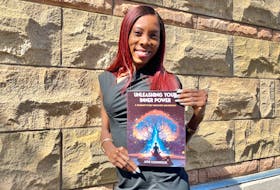The COVID-19 pandemic has sent the world into a tailspin and we’re at that point where we’ve more questions than answers. Is loosening of the controls good or bad? Should we be feeling guilty for wanting to go shopping, or see a movie, or sit in a restaurant like we once did?
It appears the world is scrambling for answers, and hungry for positive news. And for many it’s impacting on their sleep – and all the crazy dreams and nightmares we’re all experiencing right now.
According to sleep specialist Dr. Michael Breus, a clinical psychologist and both a Diplomate of the American Board of Sleep Medicine and a Fellow of The American Academy of Sleep Medicine, pandemic dreams and nightmares are so weird and intense – and people are remembering more of their dreams, or having nightmares so intense they wake up – that feelings of stress and anxiety are that much greater now.
There are explanations for quarandreaming – the crazy dreams many are experiencing – says Breus of thesleepdoctor.com, adding “you are not alone with this dream pandemic, as recent research has revealed that 53% of people recently polled show an increase in vivid drams since the quarantine began, with increases in nightmares.”
Why is this happening? “Dreams are a way for our brains to process emotionally-charged memories. This is one of the most well studied, commonly held theories about dreaming – that our brains employ dreams to work through emotionally difficult and stressful experiences, to reduce their psychological load and make them less disruptive to daily functioning.”
What are the obvious offenders? “Social isolation, massive upheaval to daily routines, fears about health, finances, and deep uncertainty about what lies ahead,” says Breus. “As well as a shifting combination of boredom, overwork, stress and anxiety. That pretty much describes how most of us are living these days, since the onset of the coronavirus pandemic.”
The pandemic is challenging all aspects of our lives, says Breus, certainly “it’s challenging our diets: a lot of us are moving from one ‘comfort food’ meal to the next – think of all the lasagnas and banana breads on Instagram.”
It’s also challenging our exercise: stuck at home working and, in many cases, simultaneously taking care of children, many of us are struggling to get our regular exercise, mostly because we feel so exhausted.
And – it’s challenging our sleep: Breus says his patients are reporting that their dreams are “more real.
“People are having stranger dreams, with odd characters and vivid combinations of the average and the bizarre. And these dreams often feel different – more striking, more charged with meaning, more vivid, more real – even if the circumstances of the dreams are fantastical.”
One patient, an ER doctor in a city hit hard by the virus, kept dreaming of getting sick and dying on a hospital gurney. Another patient told about a recurring dream in which she is lost inside an unfamiliar building and not being able to find a way out.
The coronavirus pandemic is spurring a whole lot of bad dreams – but it’s also spurring on a lot of new science studying the phenomena of dreaming: Scientists at Philadelphia’s Thomas Jefferson University conducted a survey in April and found that about 40% of respondents had symptoms of anxiety intense and frequent enough to warrant clinical intervention.
Research underway in several countries, including in Italy (one of the countries hardest hit so far by the coronavirus), as well as an ongoing study in France reveals that many of its subjects are experiencing nightmares with an intensity that corresponds to post-traumatic stress disorder.
Research has also revealed that dream recall has increased, which increases stress: “People are remembering more of their dreams, experiencing what’s known in sleep science as higher dream recall. That means more of us are taking upsetting dream and nightmare content into our waking days, for an even greater effect on mood and psychological balance, and another source of stress.”
But – bad dreams aren’t an entirely a bad thing, says Breus: “Clearly most of us are coping with unusual levels of stress right now, and our brains are using dreams to process it. As unwelcome as nightmares and disturbing dreams feel, they may be a sign of the brain doing some essential, important work to ease the intensity and emotional charge of our currently heavy daily load of stress and worry.
“And our nightmares can also serve the purpose of alerting us to anxieties we haven’t yet become aware of, or given name to.”
Breus talks of patients whose dreams “are tackling the coronavirus directly, dreaming about hospitals and illness. Others are dreaming about the virus in different ways, such as nightmares about violence, loss, uncertainty, and threats … our nightmares can also serve the purpose of alerting us to anxieties we haven’t yet become aware of, or given name to.”
Can we “re-write” the dream experience?
“A technique called ‘image rehearsal therapy’ developed by Dr. Barry Krakow at the University of New Mexico has been shown to help reduce nightmares and make sleep easier and less stressful,” says Breus. “People re-write the stories of their nightmares, turning their scary scripts into happier, more peaceful ones. Image-rehearsal therapy can be especially effective for people who experience nightmares that are chronic or recurring.”
Ultimately, dreams and nightmares are a ‘rehearsal’ for real-life threats and challenges, says Breus. “The reality is isolation makes it worse – share your story with a trusted mental health professional, contact your religious leader, talk to a friend. We are actually all in this together.”
Sweet dreams, everyone.
Copyright Postmedia Network Inc., 2020








